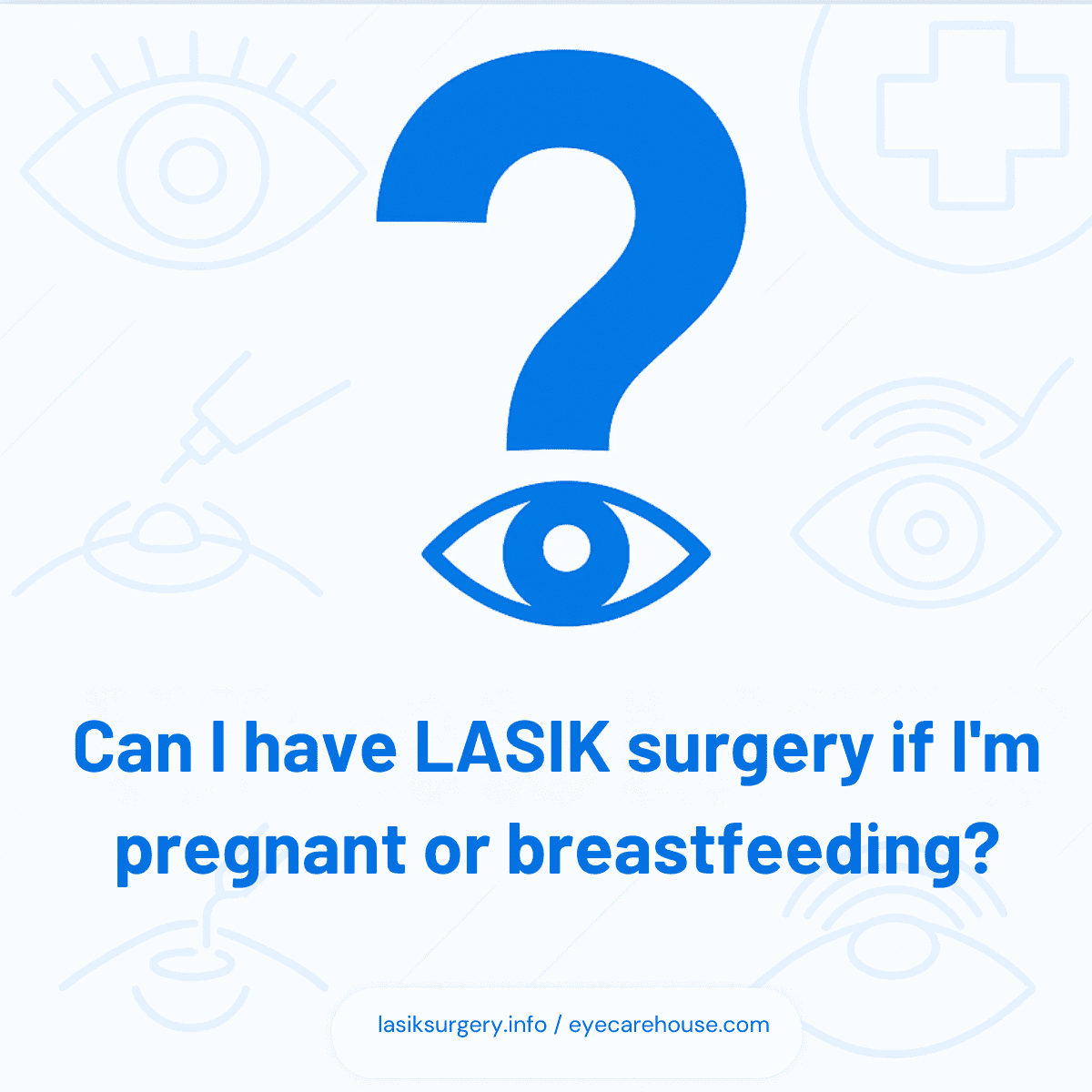LASIK Eligibility Test
Answer a few simple questions to find out if LASIK might be right for you. Before you start, please read the legal disclaimer and important information below.
Privacy & Legal Notice
This test is not a substitute for a professional consultation. Your answers are private and will not be shared. All outcomes are informational and not diagnostic.
By proceeding, you agree to our terms and privacy policy.
Watch: How LASIK Works
Before You Decide on LASIK, You Should Read:
- ✔️ LASIK Risks You Should Know
- ✔️ Pre-LASIK Checklist
- ✔️ LASIK Alternatives Compared
Frequently Asked Questions About LASIK
LASIK surgery involves creating a thin flap in the cornea, which is then lifted and reshaped using an excimer laser to correct vision. The flap is then replaced in its original position, and the cornea heals naturally.
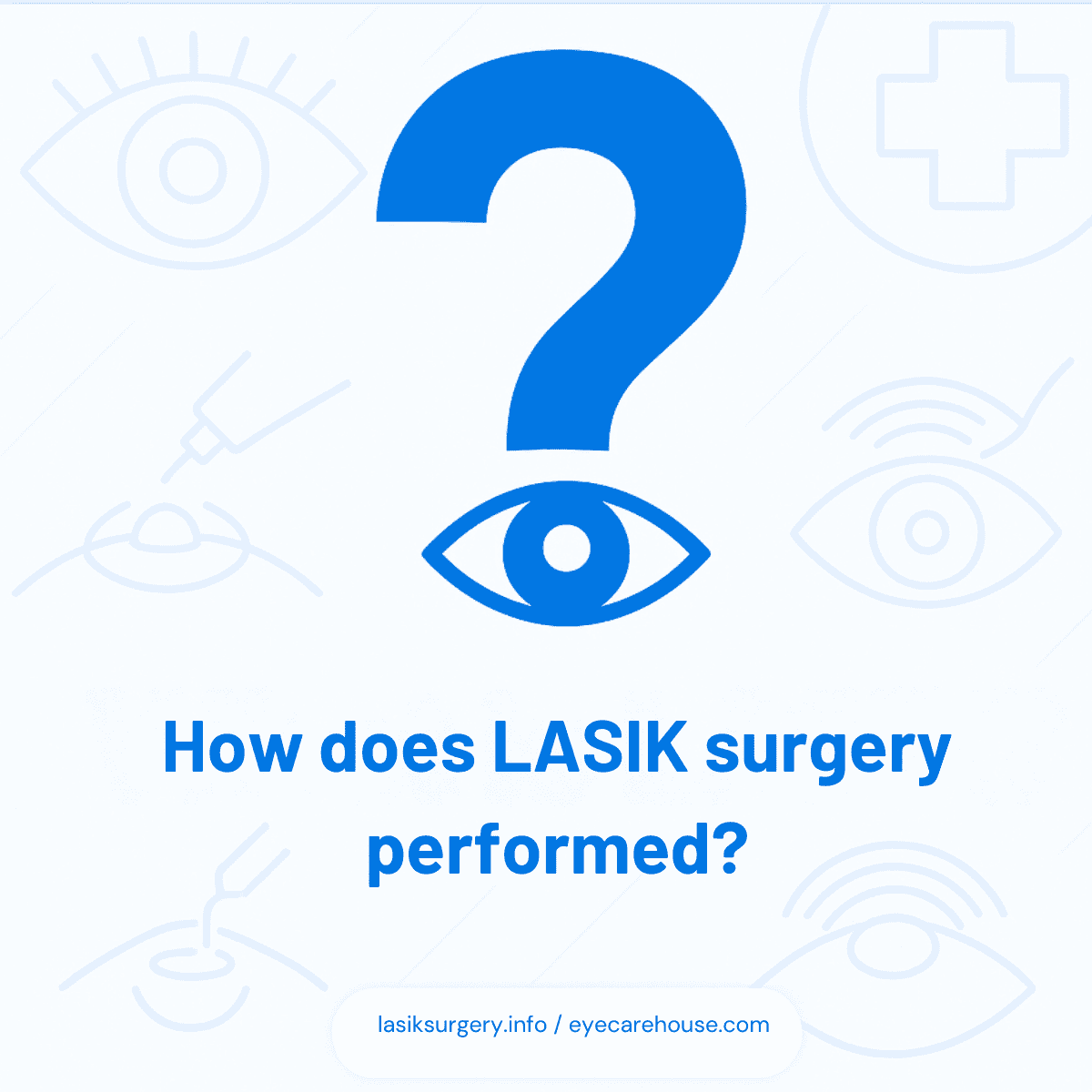
LASIK involves creating a flap in the cornea, whereas PRK involves removing the top layer of the cornea (epithelium) to reshape the underlying tissue. Both procedures achieve similar results, but LASIK has a faster recovery time.
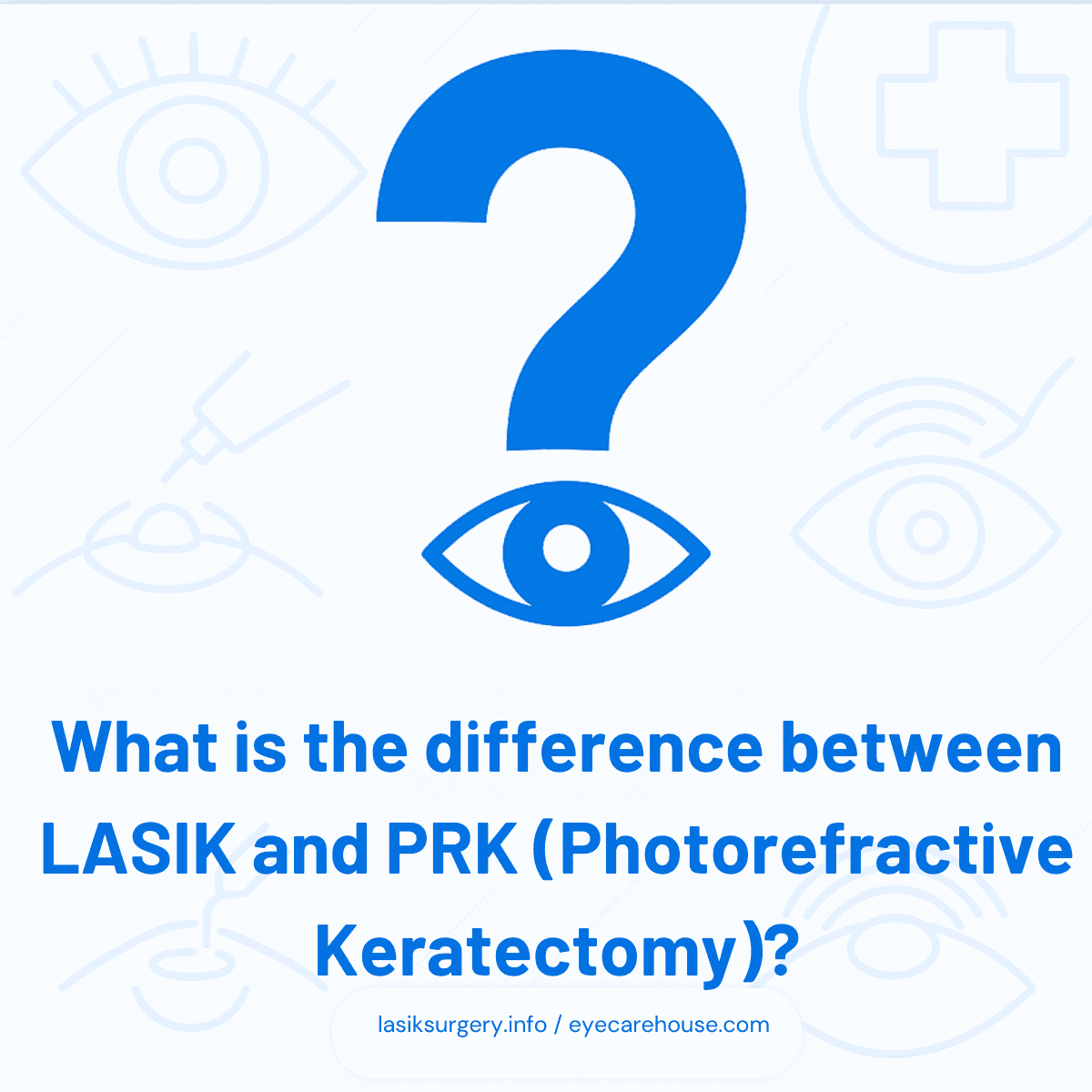
A good candidate for LASIK eye surgery is someone who is at least 18 years old, has a stable prescription, and is in good overall health.
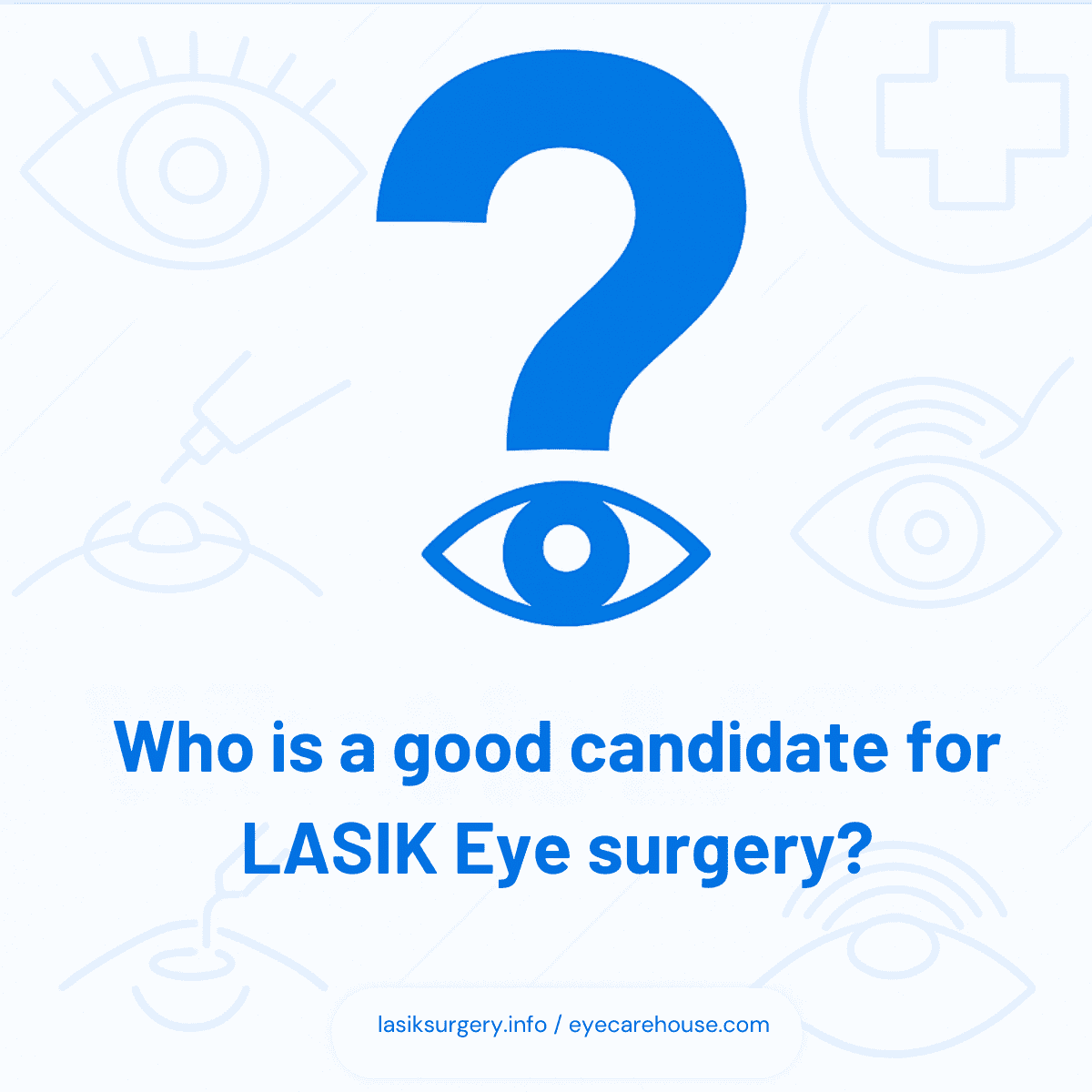
It's possible to have LASIK if you have dry eyes, but your doctor will assess the severity of your condition before proceeding.
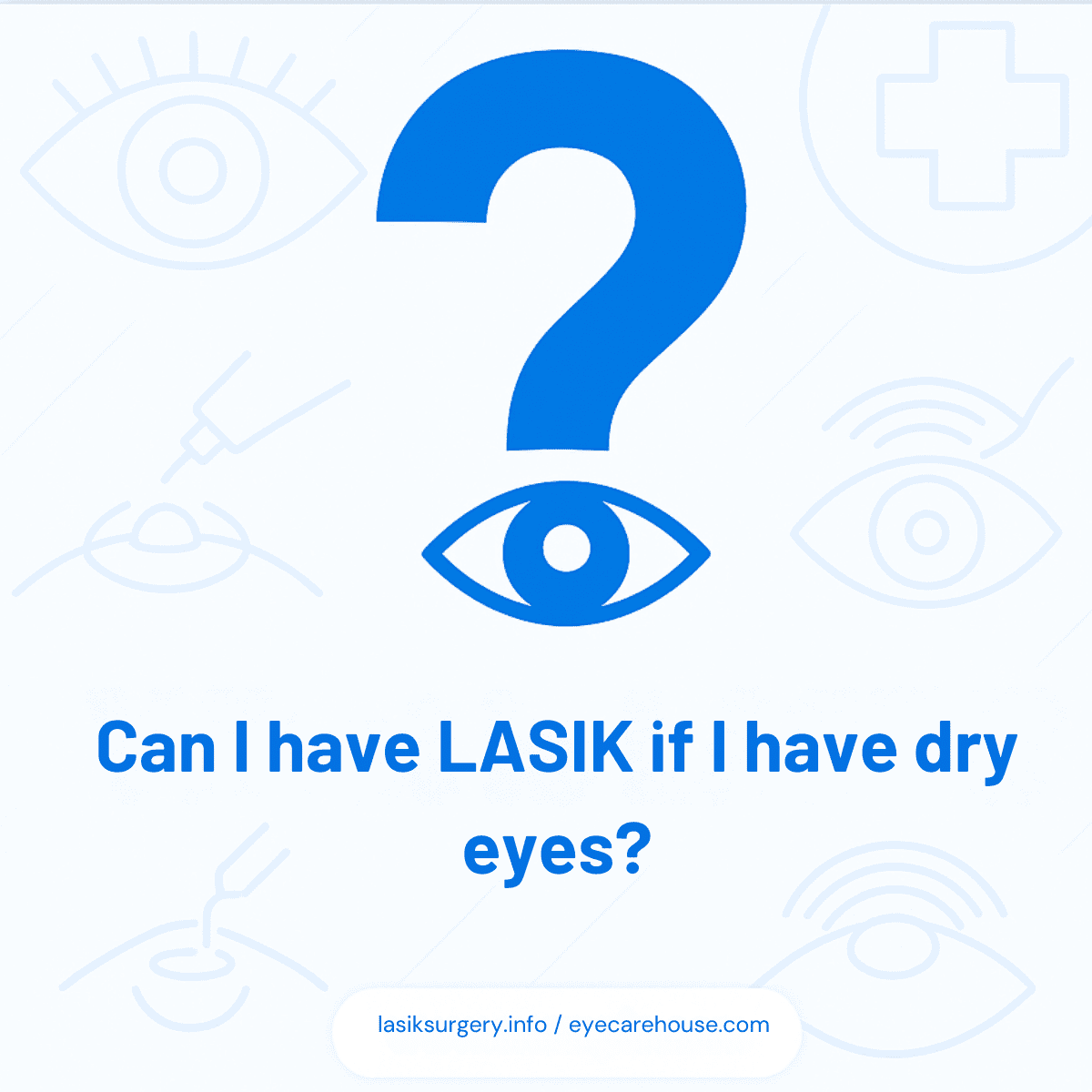
Potential risks include dry eye, infection, under/overcorrection, and halos. These are rare and often treatable.
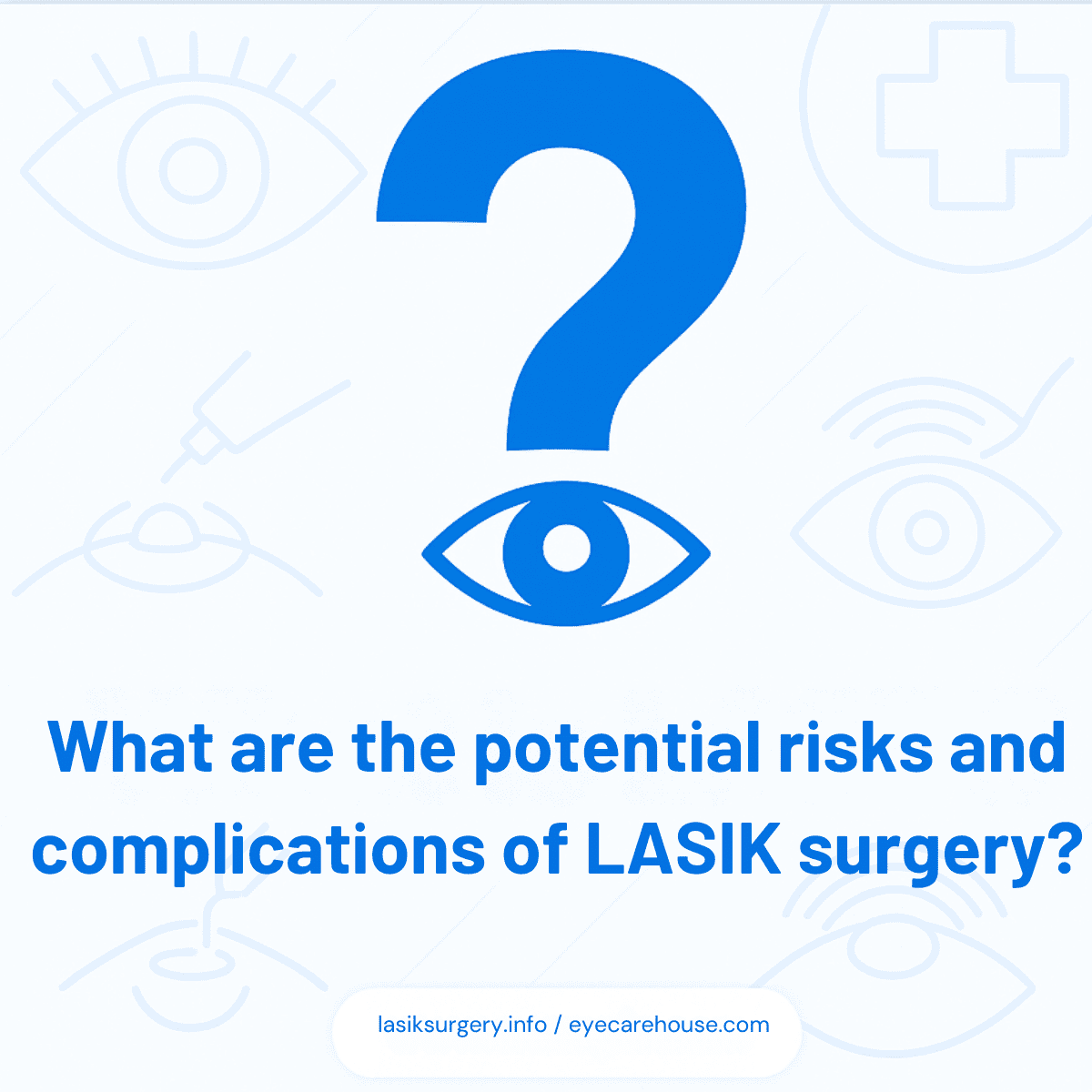
Most people recover within a few days, but it may take weeks for vision to fully stabilize.
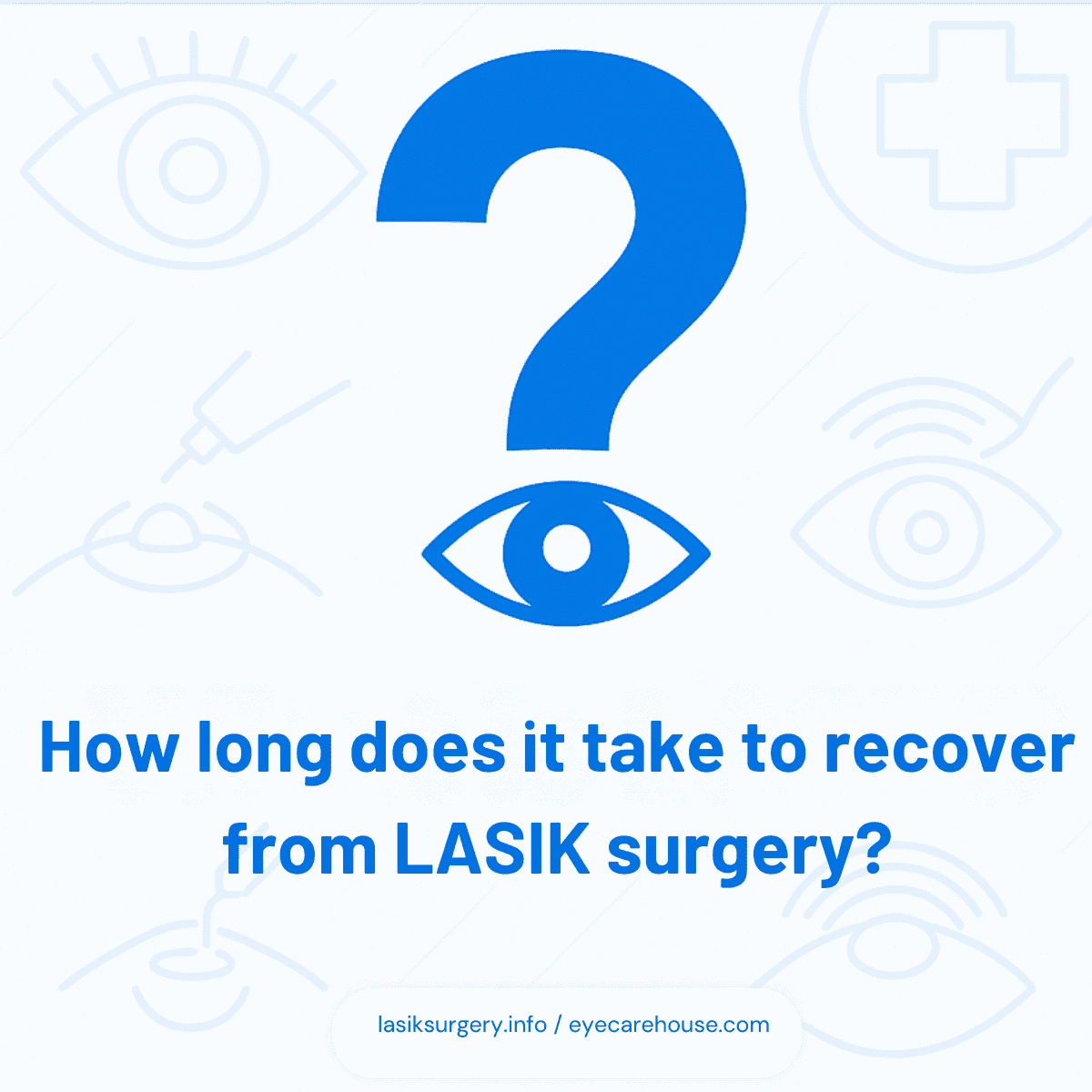
Yes, you may need to take a few days off for rest and recovery.
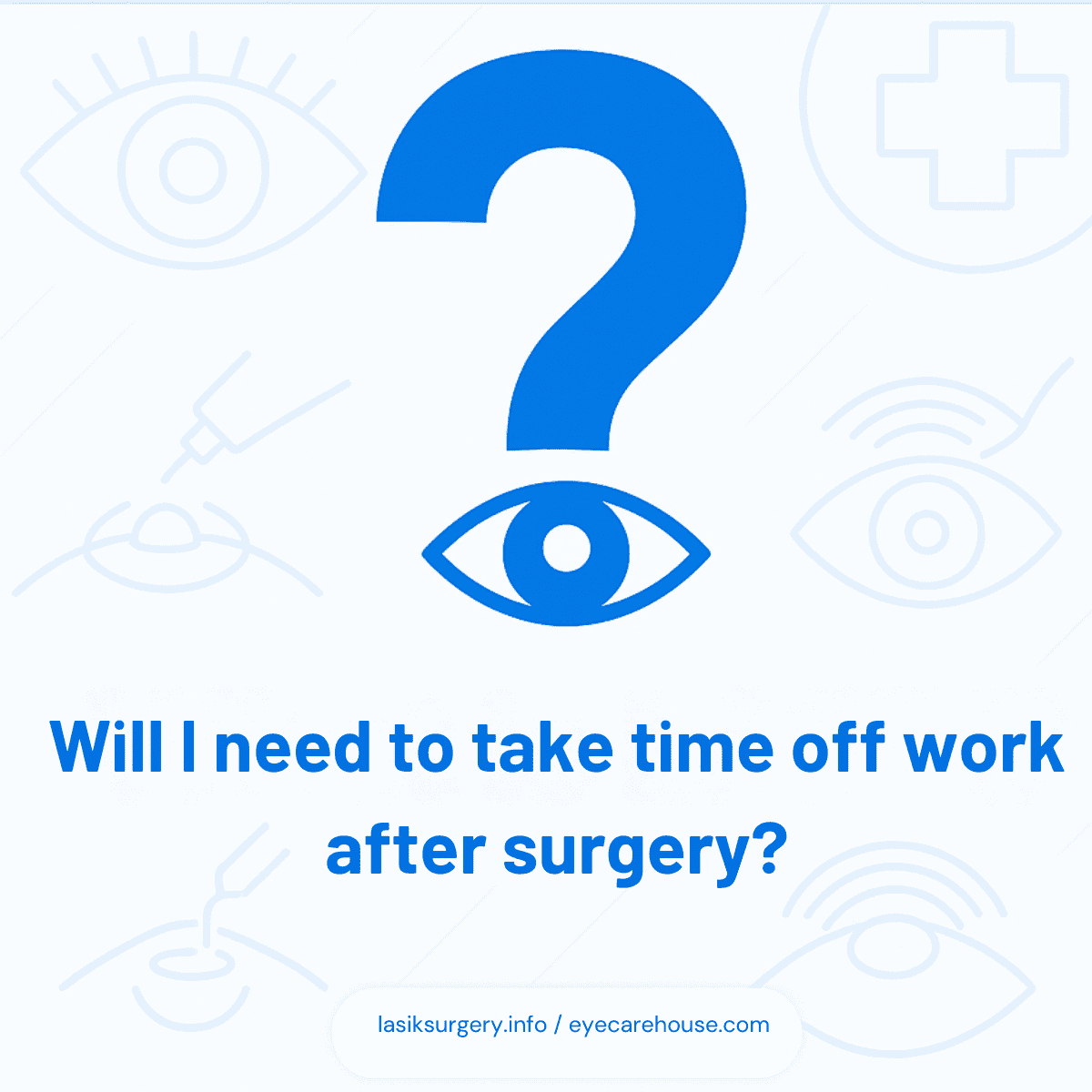
LASIK typically costs between $2,000–$3,000 per eye in the US, depending on the provider.
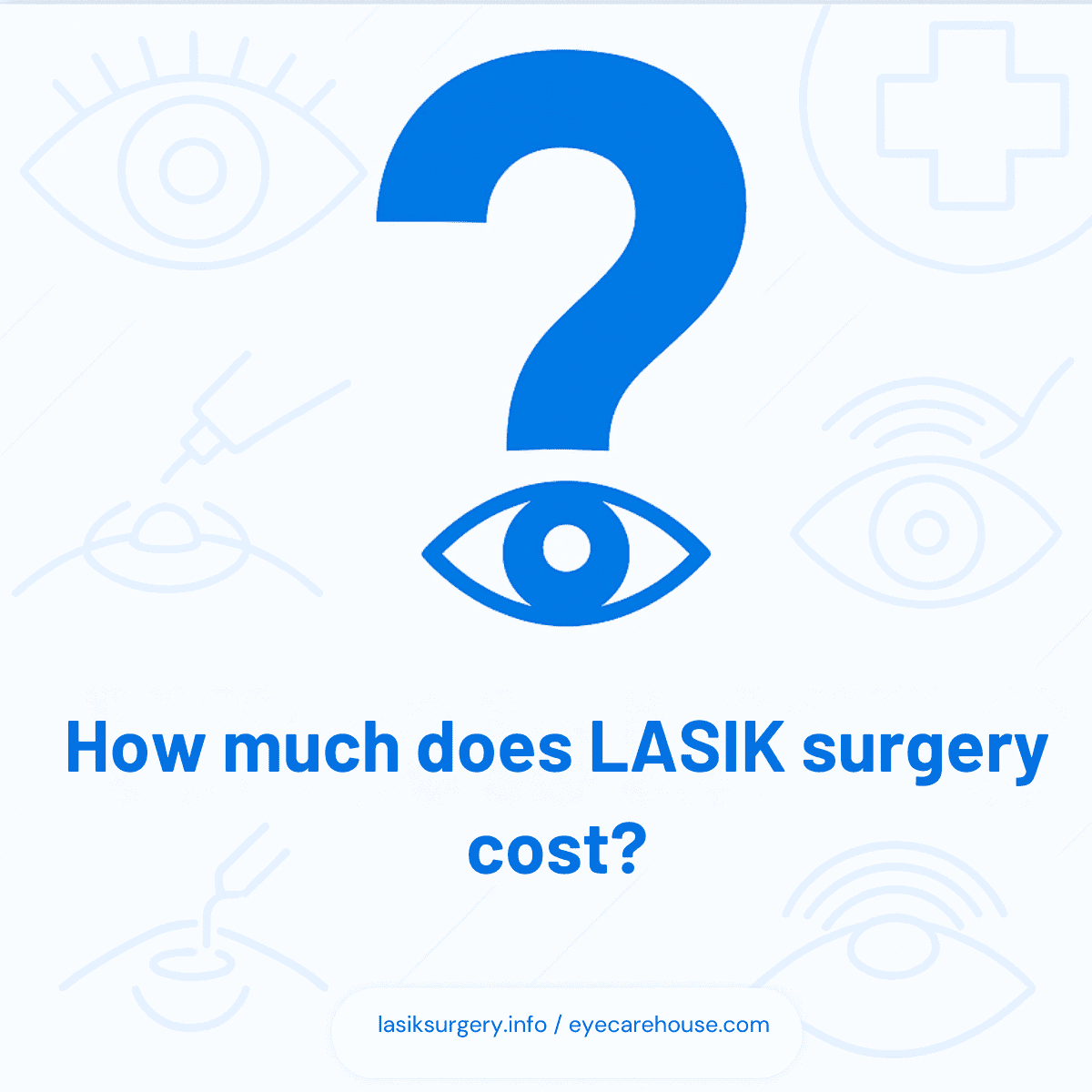
Yes, options like PRK, implantable lenses, and refractive lens exchange may be considered.
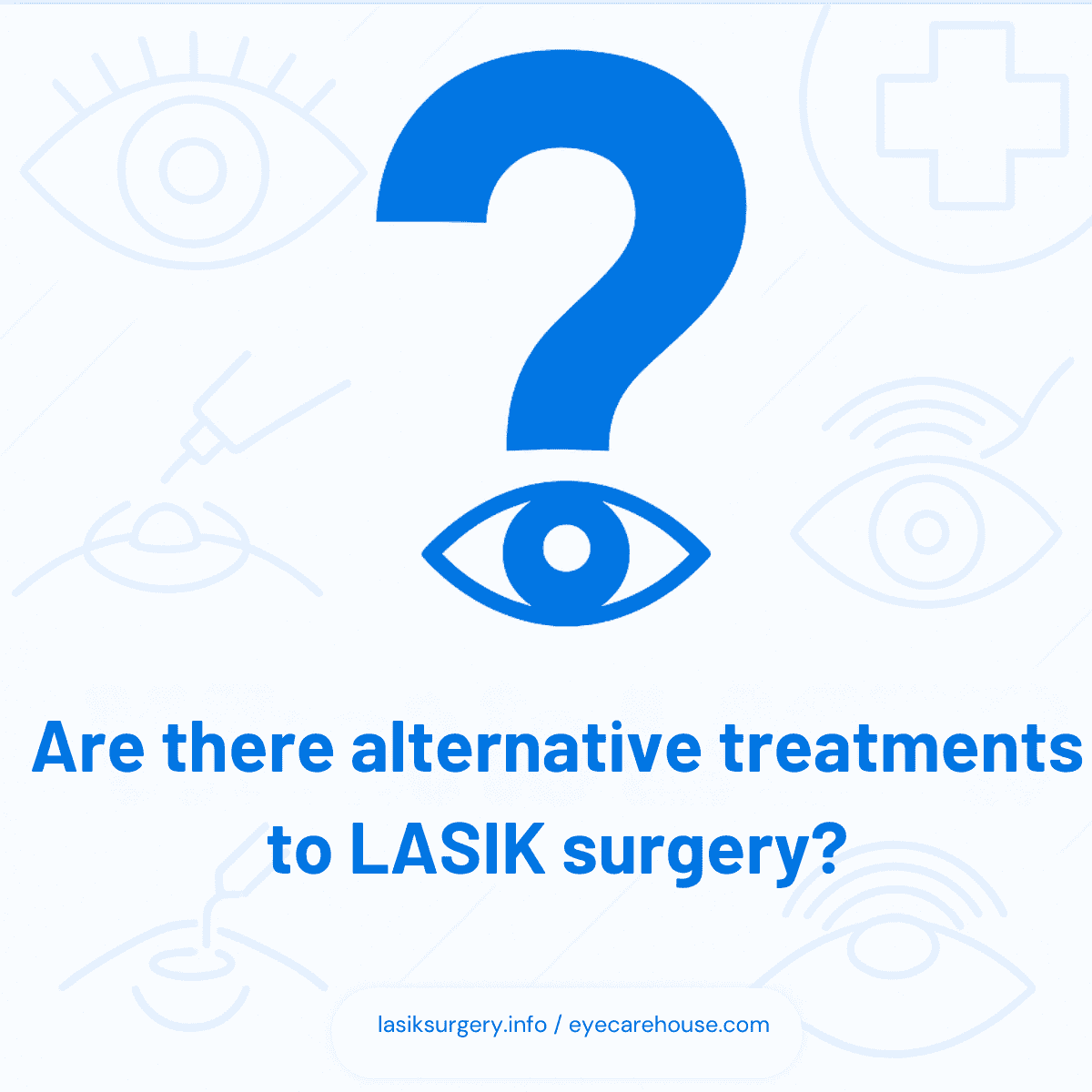
Most patients achieve 20/20 vision or better, though some may still need corrective lenses.
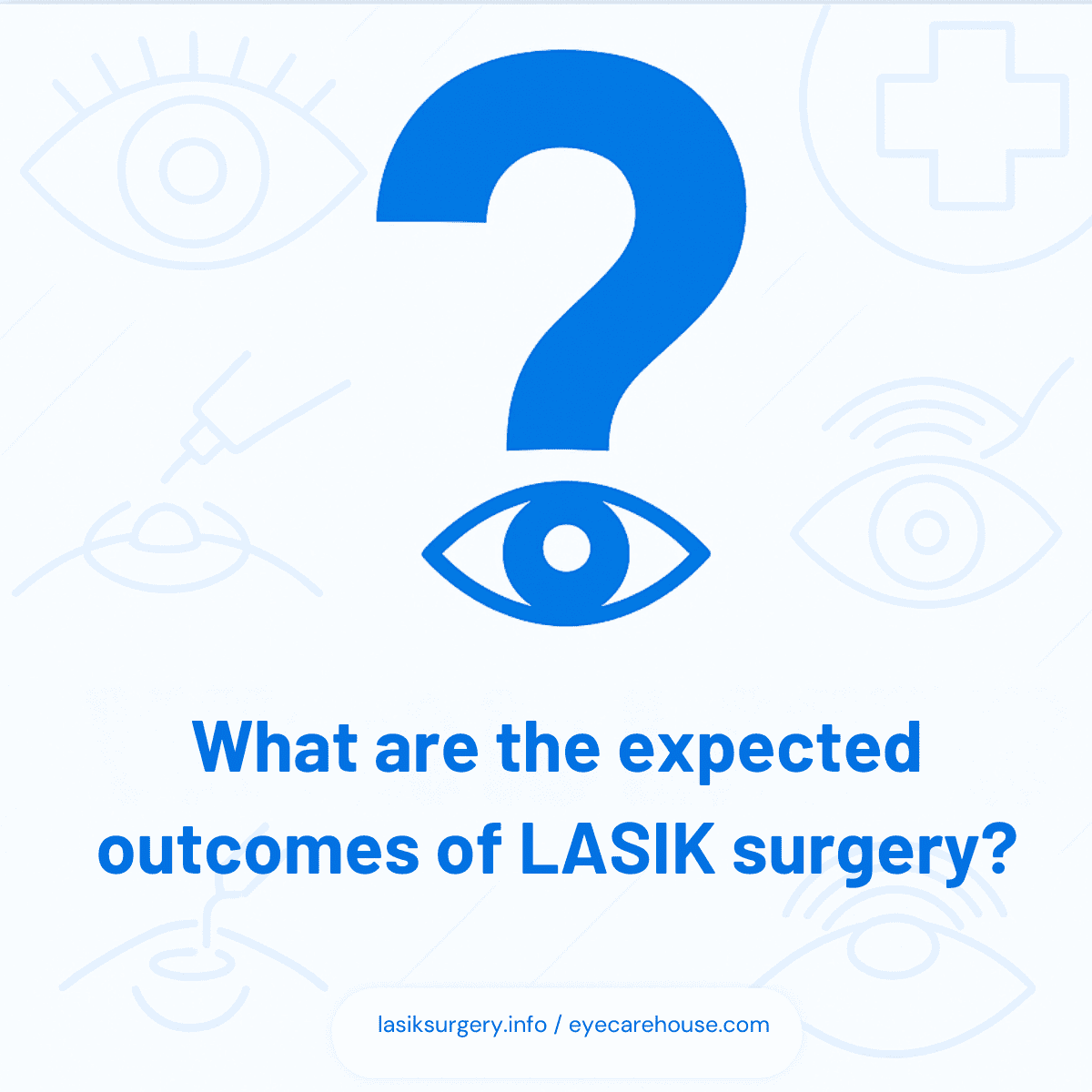
LASIK does not correct presbyopia, which may still require reading glasses.
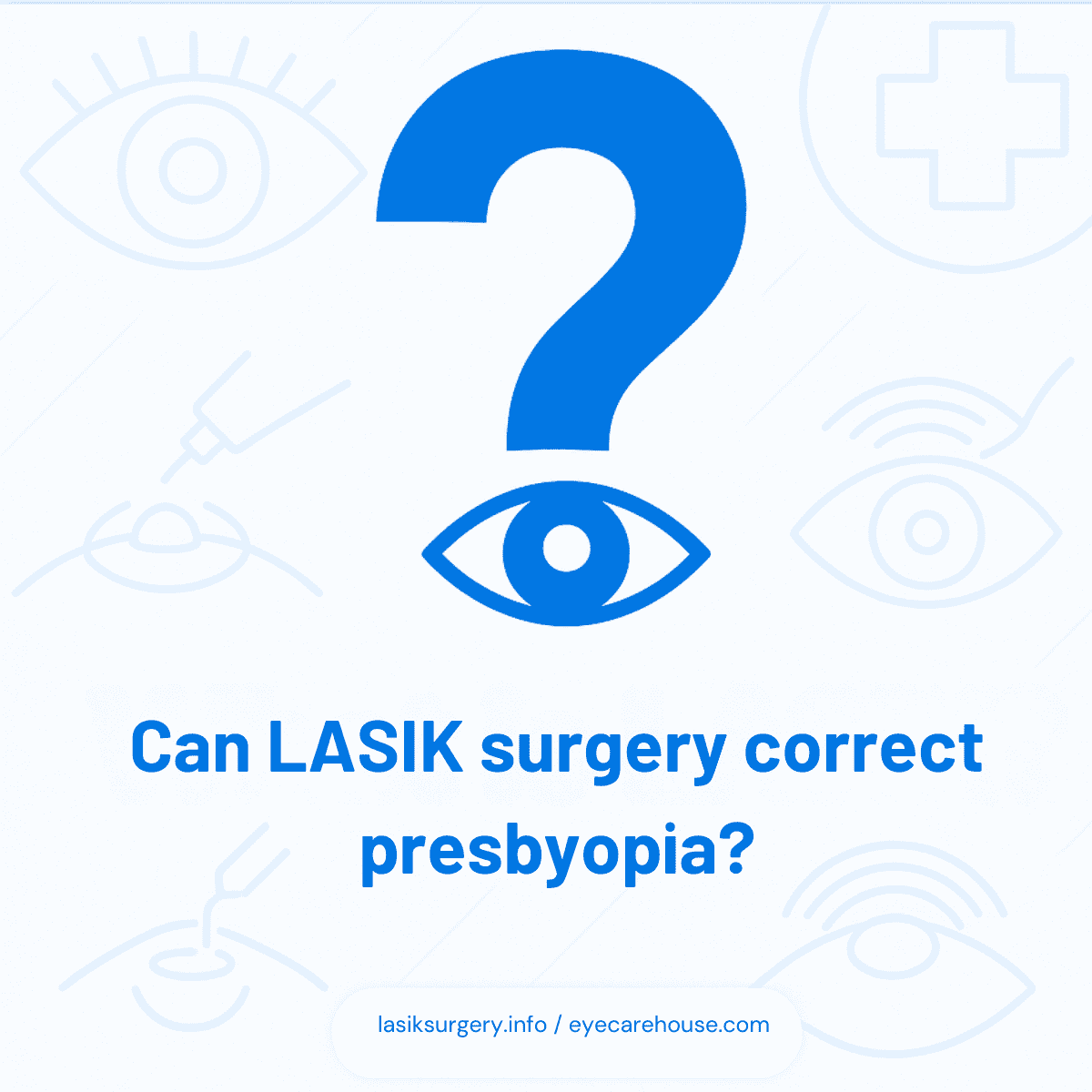
No, LASIK is virtually painless due to numbing drops used before the procedure.
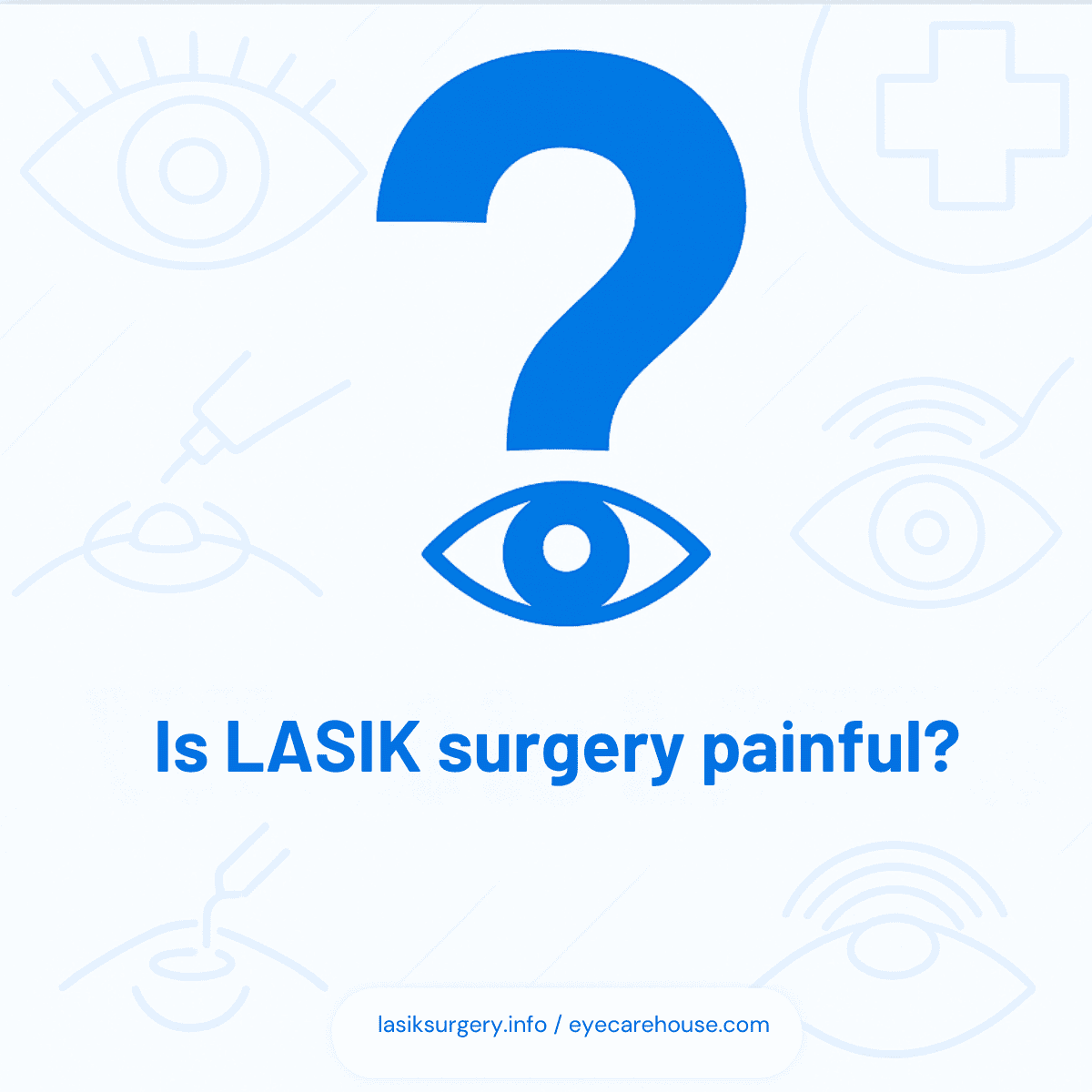
LASIK is permanent, but changes in your eyes may require future adjustments.
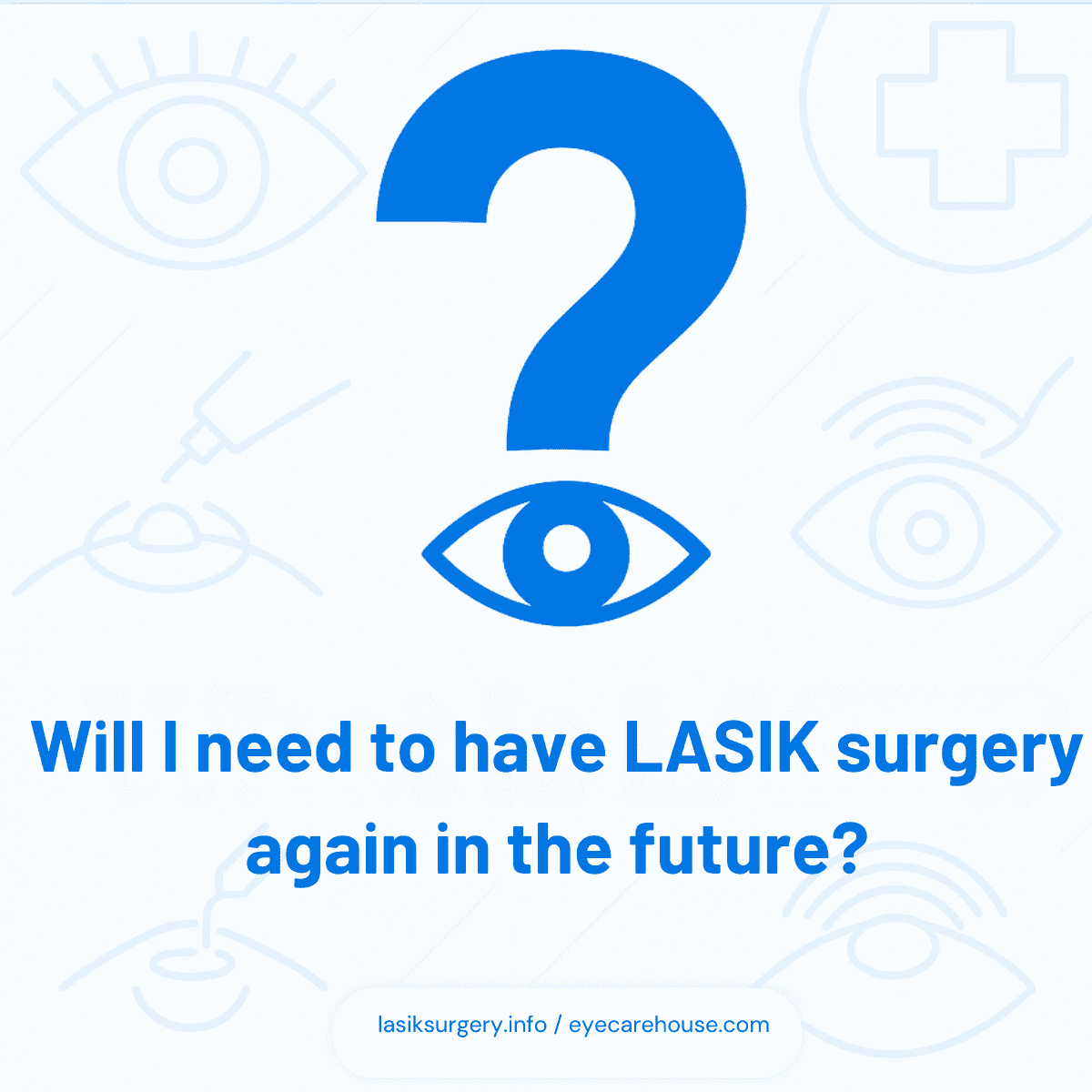
It's generally recommended to wait until after pregnancy or breastfeeding due to hormonal changes.
